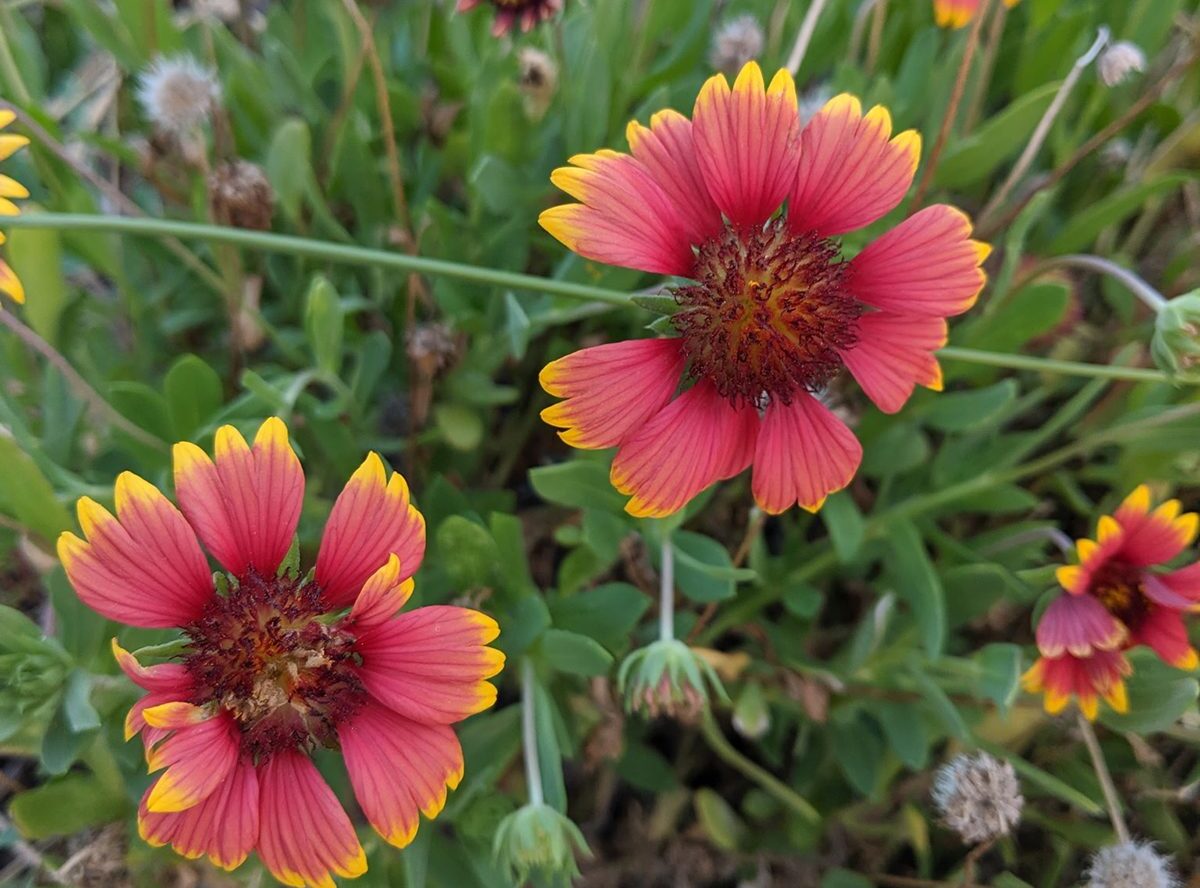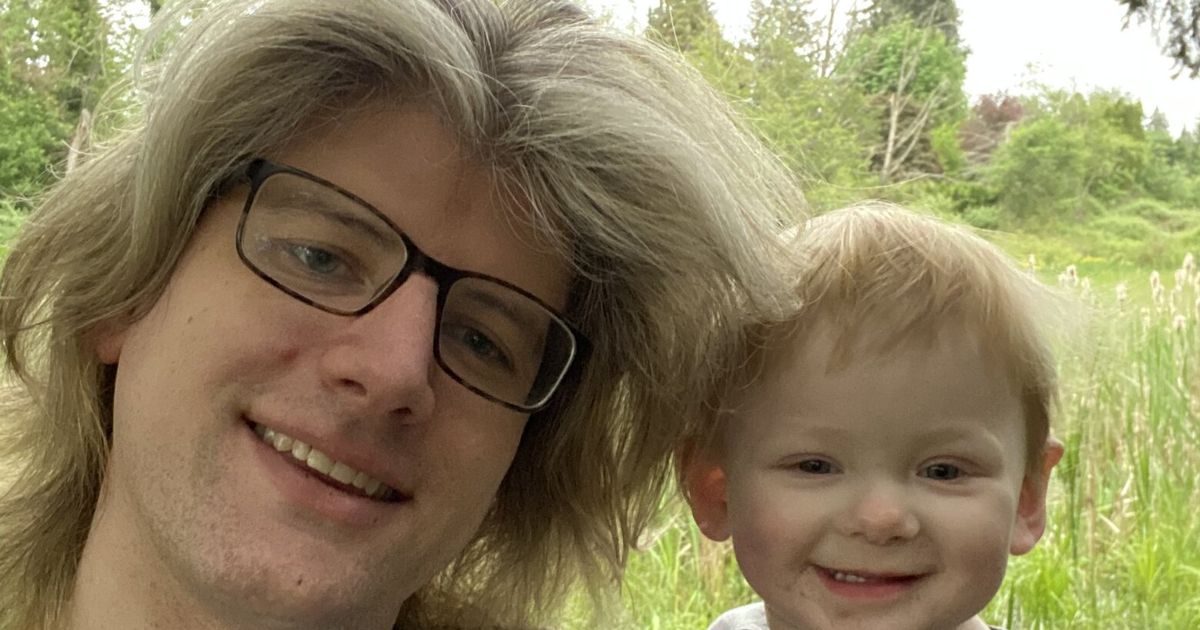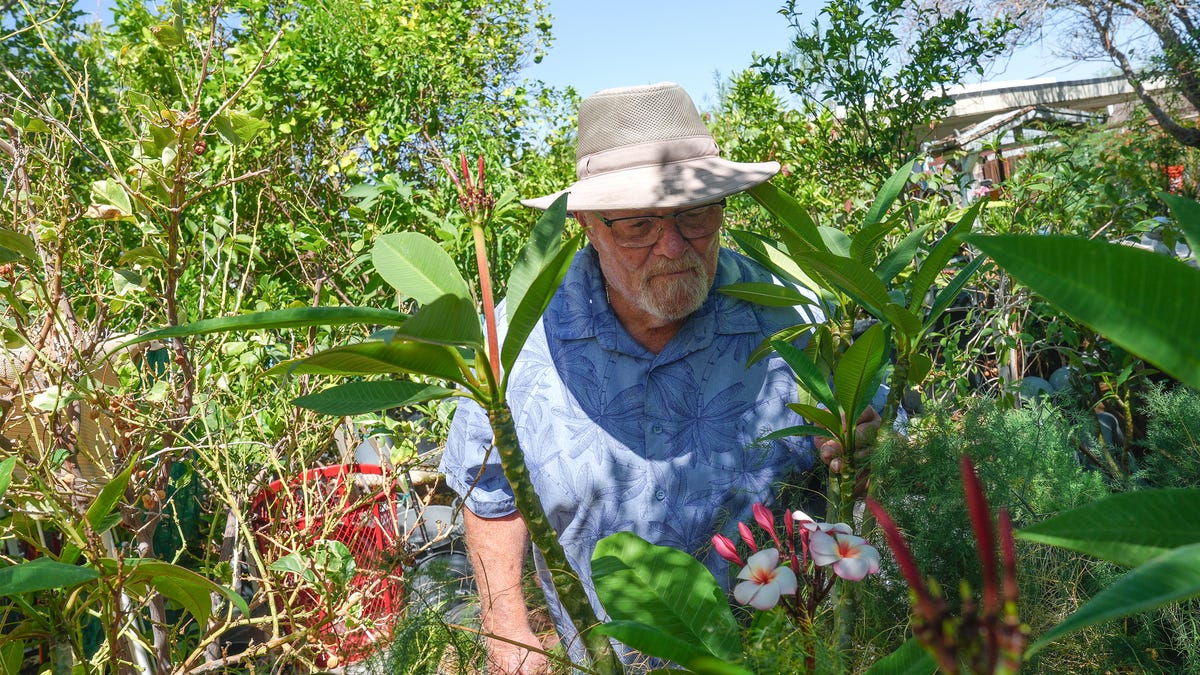When Mike Hawley and his family moved into a new house in Bothell last summer, he inherited a spacious garden from the previous owners. Hawley, a father of two and an IT analyst, had limited experience with gardening, but he began learning about all of the different plants and took over caring for the garden. After the painful loss of two close family members earlier this year, Hawley found that gardening helped him cope with his grief.
“There is a therapeutic aspect to being out in the garden — it can be calming and reduce feelings of isolation and loneliness,” Hawley said.
Hawley’s experience is not uncommon and even has its own name: grief gardening.
Tending to plants — whether outdoors in a backyard or indoors with a collection of houseplants — when we are mourning can be a powerful way to work through our emotions. Grief experts report that gardening has various therapeutic benefits during times of distress, including reducing anxiety and providing a sense of comfort, restoration and purpose.
Although grief is unique to every person, emotions are often intense, isolating and disorienting, said Rebecca Mullins, a certified grief and trauma coach in Seattle.
“Gardening can be a way to channel these feelings,” she said. “It engages the senses — the smell of the flowers, the texture of the soil, the different plant colors — all of this can be grounding and provide a healthy distraction during stressful times.”
Mullins said that a common misconception about gardening is that it requires expertise in plants or a large backyard, but gardening can be accessible to people with various levels of experience and all different spaces and can include taking care of indoor plants or having a windowsill garden. Seeing the plants grow and change can also help people grieving be more mindful of how they think about death and loss.
“Loss is connected to change, and it happens within ourselves and in nature,” Mullins said. “Plants can dry up and die off — often in the winter — and watching them bloom again after you have cared for them can create a sense of hope and be a beautiful reminder that new growth is possible.”
Hawley said that he felt that sense of hope and renewal this spring when he saw his garden start to sprout and bloom again.
“I started to feel excitement watching everything come to life again after a hard winter,” he said.
How plants improve our mental health
Researchers have found a connection between plants and the positive impact they have on our mental health, particularly during times of acute distress. Multiple studies have found that caring for plants can decrease stress, anxiety and depression, improve our mood, reduce blood pressure and may even help people recover faster after surgery.
A study published in the Journal of Physiological Anthropology found that indoor plants may decrease emotional and physical stress by “suppressing autonomic nervous system activity.”
Gardening and being around plants can also help people living with dementia improve their sleep and cognition, and decrease agitation. The sight, scents and sounds of gardens can also help dementia patients retrieve buried memories that may otherwise be unreachable.
Ray Larson, curator and associate director of the University of Washington Botanic Gardens, said there is a growing realization about the therapeutic benefits of being around plants. Larson said that this was particularly evident during the height of the pandemic when they had a record number of visitors at the gardens. “We can see how people positively react when they visit — many come to the gardens to decompress and are also dealing with grief and loss.”
Larson adds that people who are grieving and may be interested in caring for houseplants but have not done so before, can start with a durable houseplant, such as a fern or an air plant. Exploring different resources, including local nurseries which often hold classes and events, can be helpful ways for beginners to get started, he said.
Jamie Thrower, an end-of-life doula in Portland, said that grief gardening had a positive impact on her mental health after the death of her mother, an avid gardener. After her mother died, Thrower began to garden and realized it helped her stay connected to her mother and process the intense feelings that grieving can bring.
While many people think of gardening as an individual act, there can also be a supportive, communal aspect to it, Thrower said. In the nearly eight years since her mother died, Thrower said she found significant support by connecting with other grief gardeners in online gardening and grief spaces. She also began holding events in her community (both in-person and online) to bring together people who are mourning through a shared interest in gardening. At these events, she gave seeds and plants to other people who were grieving. By sharing stories about gardening and loved ones, Thrower said the events helped foster a sense of solidarity.
“When you share your grief, it gives someone else permission to do this as well,” she said.
How gardening can help grievers create a routine
Hawley’s daily routine often begins and ends in the garden. In the morning, Hawley said walking outside with his children, getting some fresh air and checking on the rose bushes can be a calming way to start the day.
Creating routines like this can be comforting, provide a purposeful task and help people get through different parts of the day when they are mourning.
Adjusting to life without a loved one can be difficult, but a regular routine like caring for plants can help bring a peaceful simplicity to our day, said mental health counselor Emily West, who specializes in grief and trauma in Kirkland.
“Oftentimes, people can feel lost in their grief, and tending to plants can be a tangible, active way to move through their emotions,” West said. “People often wake up and remember all over again that their loved one is no longer there. Having a routine with small, simple tasks such as watering the plants, checking on them, observing how they are doing and just being present in that moment — even if it’s just for a few minutes a day — can be beneficial.”
For Hawley, ending the day outside in the garden can help him decompress from the workday, especially during painful times.
“Getting immersed in the sights and smells of the garden, listening to the hum of bees or the chattering of the small birds — life is all around us,” he said. “Gardening is a way to rejoin the world of the living, which I know my grandmother would want.”
While traditional coping strategies for processing loss (support groups, individual counseling, drawing and exercising) can be helpful, grief gardening has a distinct benefit because there is a special reciprocity to it.
“When we care for plants, we are nurturing something and are also getting something back,” said Lana Dreyfuss, president of the American Horticultural Therapy Association.
If tending to plants feels overwhelming or is not possible, Dreyfuss recommends engaging with plants in other ways, including visiting a local botanical garden.
“Take some time to walk through it and think about what you see,” she said. “What flowers and colors grab your attention? What kind of plants are you drawn to? Take some time to really connect with nature.”
Dreyfuss adds that grieving can be an individual process and there isn’t a set road map to get through it, but connecting to nature can be reassuring and show those grieving that they are not alone.
Memorializing loved ones
Grief gardening can also be especially impactful because it can be a direct way to honor the memory of those who are no longer with us. Tending to a garden, caring for a loved one’s plants after they died or creating a memorial garden can help people stay connected to those they lost.
“My grandmother loved roses,” Hawley said. “Taking care of the rose bushes in my garden has been a special way to honor her memory.”
For Hawley, being outside in his garden has helped him maintain a sense of connection to his nature-loving family members despite their deaths.
“We can maintain a connection through plants that I didn’t really get until I lost a loved one,” he said.









